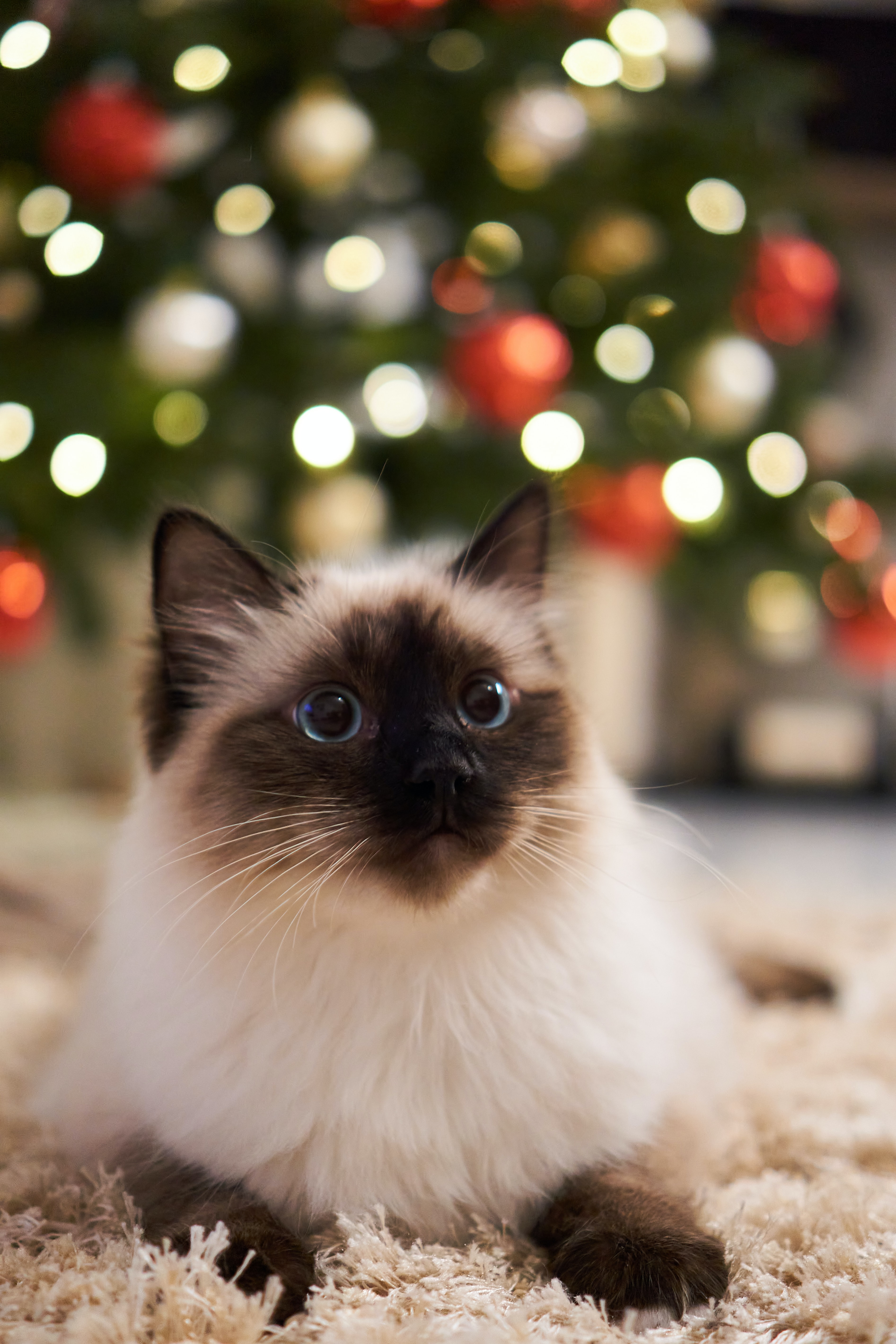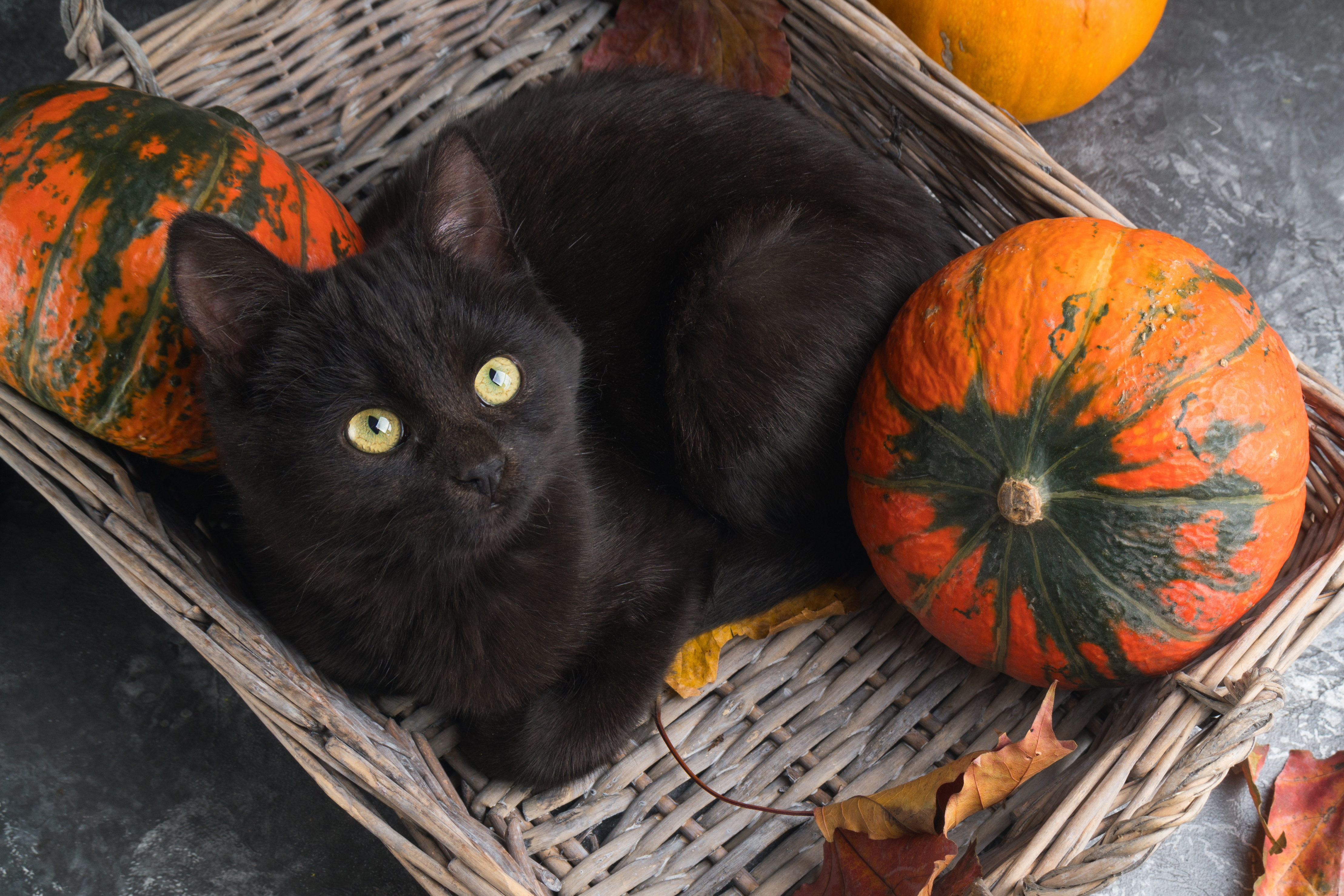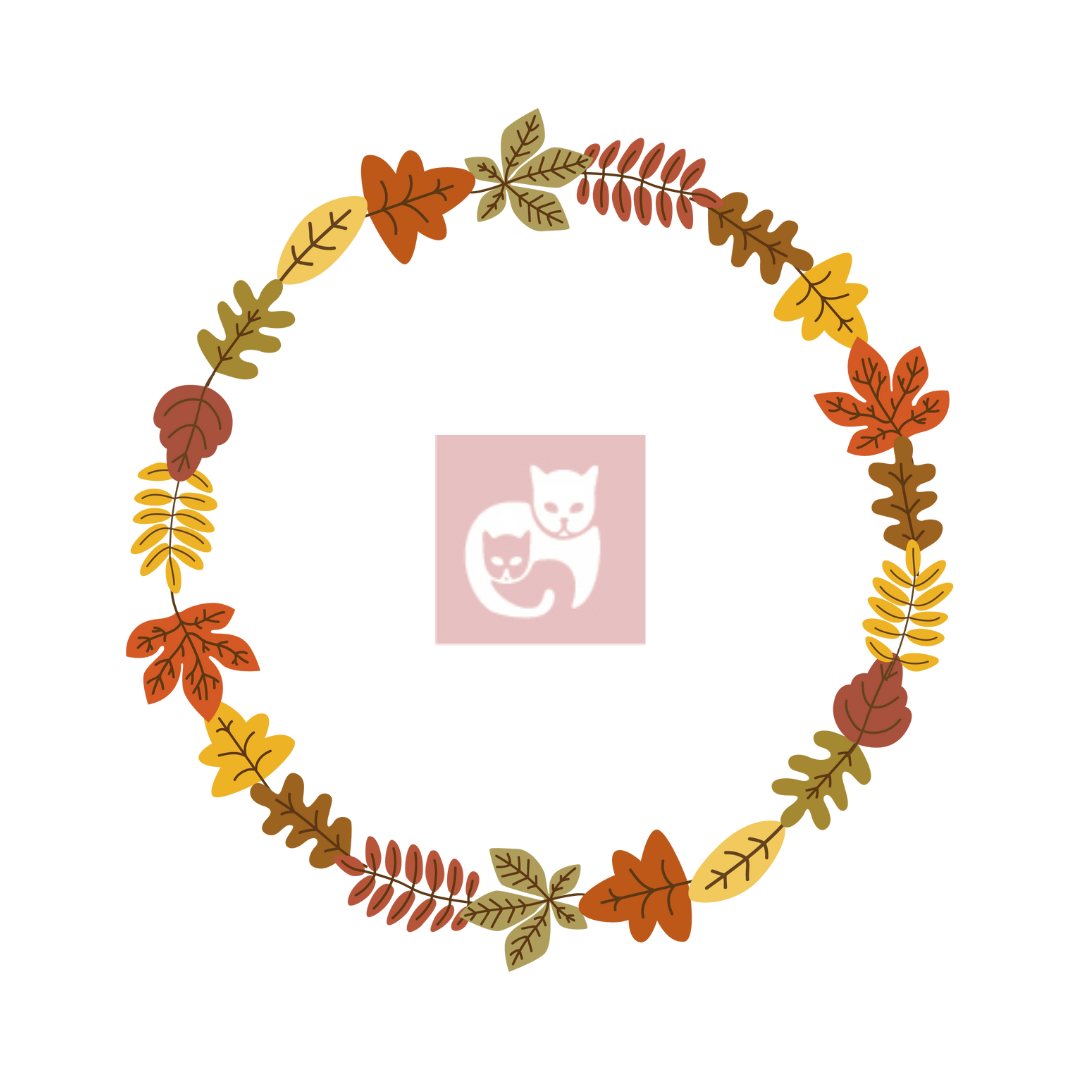Beware Holiday Hazards
Cats, being the inquisitive creatures that they are, appreciate things that are new and different. Because the holidays bring an array of novel and interesting stimuli into the home, the curious kitty can certainly get into trouble.
Hanukkah, Kwanzaa, Christmas, and other wonderful winter delights

For the climbing kitty, a holiday tree offers the excitement of the outdoors inside the home, and even an undecorated tree is not without risk. Unless the tree is anchored, the results can be devastating. "I've heard many stories about Christmas trees coming down," says Pamela Perry, DVM, senior veterinary behavior resident at Cornell University Hospital for Animals (CUHA), and a behavior consultant for the Camuti Consultation Service.
A married couple who were Dr. Perry's clients had tried repeatedly to keep their tree standing in spite of their cat. After several unsuccessful attempts, the wife gave up and left the house. "When she returned, her husband had hung the tree upside down from the ceiling," says Dr. Perry. Although hanging a tree upside down may be extreme, anchoring it to the ceiling with a cup hook and some wire or string may keep your tree from coming to harm.
If your cat enjoys chewing on greens, he may dine on the tree's needles, and having an artificial tree may not discourage a persistent feline from choosing the branches as a midnight buffet. A light coating of something distasteful on the lower branches may keep kitty from snacking on them. "Peppermint or other pungent oils may dissuade your cat from eating your tree," says Dr. Perry. "Cats' noses are sensitive, so mix it in a spray bottle and spray the areas you don't want your cat to attack." Not all cats dislike the same things, so you may need to experiment. Light applications of wasabi paste, Tabasco sauce or citrus may also do the trick.
Decorations Aren't Toys!
A decorated tree can become a new play station for the cat looking to increase her gaming quotient. Many tree ornaments are made of materials such as glass or ceramics that can easily shatter. Rather than risking the favorite heirloom as well as the cat, hang ornaments of cloth, straw, wood, or other non-breakable materials at a cat's eye level. "Place cat-friendly ornaments at the bottom of the tree," says Dr. Perry, "and tie them to the tree with cloth loops rather than hooks."
If you have a live tree, keep your cat away from the water used to keep the tree fresh. "Use plain water that has no chemicals added," says Dr. Perry.
To a cat intrigued by the apparent movement of shiny metallic tinsel, all that glitters is not good. While Dr. Perry was a veterinary student, her cat, Chester, gobbled some tinsel from her Christmas tree. "Some cats like shiny things," says Dr. Perry. The giveaway that Chester had eaten the tinsel was that he vomited up much of it. For other cats, tinsel may work its way into the digestive tract and become lodged in the intestines. Some of it may make it all the way through to be expelled through the anus, but other material may require surgery to remove. "If a piece of tinsel gets wrapped around the base of the tongue before being fully swallowed, it acts like a piano wire as the cat is digesting and perforates the intestines," says Dr. Perry. "It's very life-threatening."
Other holiday decorations can pose problems as well. "Chewing on things like little bulbs, wires, phone cords and electrical cords - especially when they are plugged in - is all dangerous to your pet," says Dr. Perry. To keep cats away from cords of any kind, tie up the cords or place them in a heavy plastic cord protector, available at hardware stores. Cord protectors can be cut to any length desired and some can attach to the wall or baseboard.
If you have a party, make certain that your cat is safely tucked away so he doesn't run out the door. Many cats, however, avoid strangers and prefer to hide when guests arrive. "If you have that many people for a party, your cat probably won't want to interact;" says Dr. Perry. "Some like to wait till everyone is settled in before coming out from hiding."
When wrapping presents, avoid long ribbon ties, especially if you place them under a tree. "Cats like to chew novel things, so make sure it's safe," says Dr. Perry. "If it's not safe for a child, it's not safe for a cat."
Halloween

Halloween poses well-known stressors and safety risks to our cats, from ringing doorbells to scary costumes. But here are two surprising threats we may overlook: burning candles and heated essential oils in potpourri containers that we tend to use more in the fall.
“Cats are drawn to the flickering light and the taste of many essential oils,” says Gretchen Schoeffler, DVM, Section Chief of Emergency Medicine and Critical Care Services at Cornell University College of Veterinary Medicine. “The most common ailments we see during this holiday are cats with burns on their paws and tails from swatting at the flickering flames and cats with horrible chemical burns on their tongues caused by lapping up essential oils from potpourri containers that spilled on their coats and they attempt to lick off,” says Schoeffler,
She suggests battery-operated candles placed inside real carved pumpkins or synthetic ones to convey light without the risk of triggering house fires or causing burns to a cat. “We’ve treated cats who have had their whiskers singed or their paws burned due to playing with open flames or stepping into hot wax.”
Dr. Schoeffler’s recommendation for scented potpourri: Use containers with inaccessible lids. “If cats do ingest essential oils, the oils can cause significant chemical burns to the mouth, tongue and esophagus.”
 Thanksgiving
Thanksgiving
Thanksgiving is a wonderful time to get together with beloved family and friends, and to take a break to appreciate the good things in our lives.
It is also a good time to remember that the celebrations we have with those we love may involve activities that can put our cats at risk. With this in mind, taking a few measures to keep our beloved feline friends safe during the holiday season is a good idea, and the first step toward doing this is to recognize some of these risks.
Since it is very common to have visitors/guests during Thanksgiving, and since unfamiliar people (and their pets, if they are coming along for the visit) can cause stress in cats, providing a place where your cat can relax in peace (away from guests and activities) is a good idea. This may be a separate room with water and food bowls, a litter box, and perhaps a kitty bed. Your cat should be able to access these things easily and at his discretion.
Being mindful of where your cat is when you open the door to welcome guests. Some cats may try to escape if given the opportunity. It is also important that your cat has appropriate identification, either in the form of a tag on a collar or a microchip, in the event that he or she does escape.
While one of the best parts of Thanksgiving is the food, cats can suffer from toxicities and/or injuries if they eat certain foods. Onions and garlic, for example, are toxic to cats, and eating fat from meats can predispose them to pancreatitis. Eating poultry bones (or any bones, for that matter) can cause GI obstructions, so while it is likely OK to give a cat a very small piece of lean turkey as a special treat, it is generally best to avoid feeding cats human food, and to prevent them from accessing anything in the garbage.
Take some dedicated time to play with your cat each day during the holidays to alleviate their stress, give them some exercise, and assure them that all is OK. Five or ten minutes per day can do the trick, and this is a fun way to celebrate your gratitude for each other during this time of thanks.
By taking these small steps, you can keep this special time of year happy and safe for your cats while enjoying the warmth and happiness of those you love.
Other holidays that present common cat hazards? Think Easter lilies and baskets full of chocolate. 
For more on common cat hazards.


